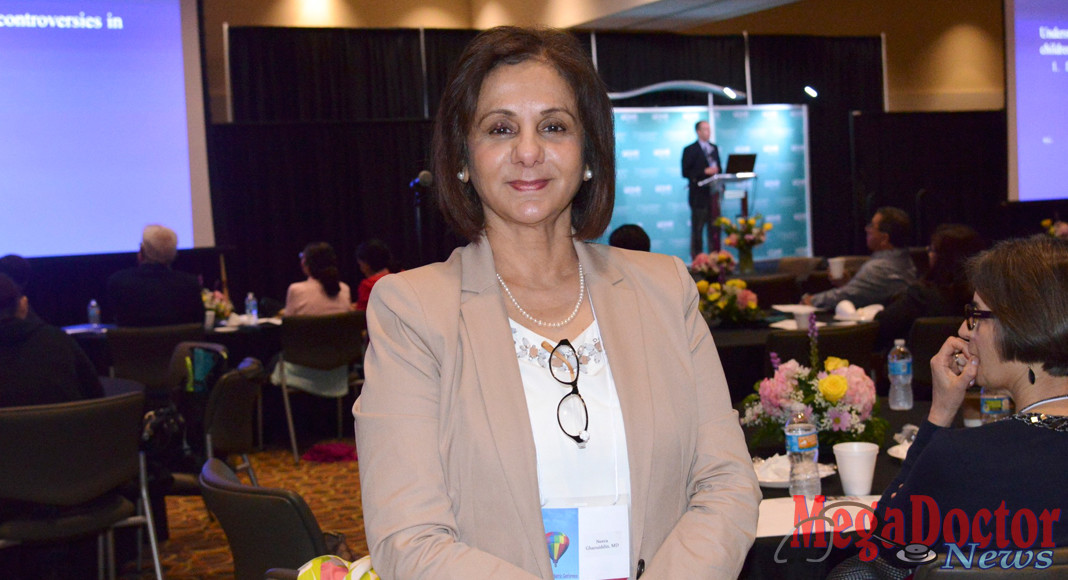
Adolescent Depression
By Roberto Hugo Gonzalez
As originally published by Mega Doctor News in its newsprint edition February 2017.
Neera Ghaziuddin, M.D., an Associate Professor at the University of Michigan, Ann Arbor visited the Valley and participated as a lecturer in the 4th Annual Pediatric Conference put together by Doctors Hospital at Renaissance. The conference gave an important update for primary care physicians, pediatricians, and allied health professionals.
Dr. Ghaziuddin, a Child and Adolescent Psychiatrist at the University of Michigan in Ann Arbor, spoke about depression during childhood. She told the audience, that the focus was mostly on adolescent depression, however, her lecture also covered pre-pubertal depression as well.
“Some of the main things that I’m going to be talking about are the changes in the diagnostic and statistical manual, the Diagnostic and Statistical Manual of Mental disorders (DSM).” She also said, “DSM V came out about a year and a half ago, the epidemiology of new disorders with focus on depression, co-morbid conditions, complications and risk factors.”
“What do we expect when we see a depressed child in our office? What does it mean in terms of treatment response, complications, and the short term and long term outcome? What are the youth and adult differences, issues related to FDA, and some key treatment studies?” Dr. Ghaziuddin mentioned that it’s a good idea to think of new disorders as being unipolar and bipolar.
During her presentation, a power point was being projected to two large screens, she referred that she had enclosed the top three bullets with arrows to refer primarily to unipolar depression where the mood disturbance is predominantly unidirectional moving as in one direction or flow. She said, “The main categories in unipolar depression are major depressive disorder, persistent depressive disorder or dysthymia, and unspecified depressive disorder.”
She also talked about disruptive mood dysregulation disorder, or DMDD. She pointed out that this is a new category that has been included in DSM V. “I think the driving factor was to reduce over diagnosis of bipolar disorder.” She continues, “However, it’s a new category, and I think it’s something that’s being taught about and studied.”
Dr. Ghaziuddin said that she gets a lot of people asking questions and saying, ‘What do you think about DMDD?’ and I think my answer really should be that we really don’t know at this point.” She also mentioned that there are the classic bipolar disorders, one, two, cyclothymic disorder, and bipolar disorder due to other conditions.
She also said that there are several myths that surround mood disorders, particularly depression in children. “I recall in the eighties when I was doing my training, there was a lot of excitement in the psychiatric community, and people were saying, ‘We can diagnose depression in kids now’.” She added, “I think what it highlights is that the acceptance and the acknowledgment of depression in children is relatively recent. And there’s a vast contrast between what we know about depression in adults versus what we know in kids.”
However, patients can learn to understand that therapy can improve how effective the medication is. Depression is treatable and there can be recovery from depression. MDN









